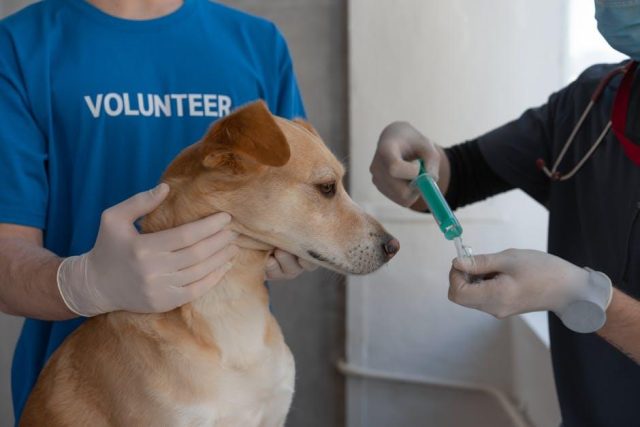In the cozy corners of our homes, our pets are more than just companions—they’re family. Just like any family member, their health and well-being are paramount. For those who have been caring for a pet on long-term medication, the journey can feel like a delicate balancing act. Weaning them off these medications safely requires not only knowledge but also a touch of tenderness. In this article, we’ll guide you through the compassionate process of transitioning your furry friend away from long-term meds, ensuring their continued health and happiness. Whether you’re a seasoned pet parent or new to the experience, let’s embark on this path together with warmth and care.
Understanding the Importance of a Gradual Transition
When it comes to easing your pet off long-term medications, a thoughtful approach is key. Abruptly stopping medication can lead to withdrawal symptoms or the resurgence of the condition being treated. Instead, a gradual transition helps your pet’s body adjust and minimizes potential risks. This process is often a collaborative effort between you and your veterinarian, ensuring a tailored plan that suits your pet’s unique needs.
Consider the following benefits of a gradual transition:
- Reduced Side Effects: Slowly tapering off medication can decrease the likelihood of adverse reactions.
- Improved Monitoring: Gradual changes allow for careful observation of your pet’s response, making it easier to spot any issues early.
- Increased Comfort: A step-by-step reduction helps maintain your pet’s comfort and wellbeing during the process.

Consulting Your Veterinarian for Tailored Guidance
Every pet is unique, and their medical needs can vary significantly. Consulting with your veterinarian is crucial for creating a weaning plan that prioritizes your pet’s health and comfort. Your vet will consider factors such as:
- Medication type and dosage: Understanding how different medications interact and affect your pet is essential for a safe transition.
- Pet’s health history: Previous conditions or sensitivities can influence the weaning process.
- Behavioral changes: Monitoring any shifts in behavior can provide valuable insights.
Engage in an open dialogue with your vet. Ask questions, share observations, and express any concerns. Together, you can craft a personalized plan that ensures your furry friend’s well-being while gradually reducing their medication intake.

Monitoring Your Pet’s Health and Behavior
Understanding your pet’s health and behavior is crucial during the weaning process. Pay close attention to any changes, both subtle and significant, as these can be indicators of how well your pet is adjusting. Behavioral cues such as increased anxiety, lethargy, or restlessness may suggest discomfort or withdrawal symptoms.
- Observe eating habits: Notice any changes in appetite or digestion.
- Monitor energy levels: Track any unusual spikes or drops in activity.
- Watch for behavioral shifts: Look out for aggression or clinginess.
- Track physical changes: Check for signs like weight loss or coat condition.
Keeping a daily log can help you spot patterns and communicate effectively with your veterinarian. Remember, your pet relies on you to notice these shifts and ensure their comfort and safety.

Supporting Your Pet with Natural Alternatives
Transitioning your beloved pet to natural alternatives can be a thoughtful way to enhance their overall well-being. Begin by exploring options like herbal supplements, which can support a variety of health needs from joint care to anxiety relief. Incorporate nutrient-rich diets that include whole foods and natural ingredients, ensuring a balanced intake of vitamins and minerals. Many pets benefit from aromatherapy or essential oils, such as lavender or chamomile, which can soothe and calm them naturally.
- Herbal Supplements: Chamomile, turmeric, and valerian root are popular choices.
- Nutrient-Rich Diets: Incorporate fresh vegetables, lean meats, and omega-3 fatty acids.
- Aromatherapy: Use diffusers or pet-safe sprays to introduce calming scents.
It’s essential to consult with a holistic veterinarian to tailor these alternatives to your pet’s specific needs. Monitor your pet closely during the transition, adjusting as necessary to find the perfect balance that supports their health journey.


































